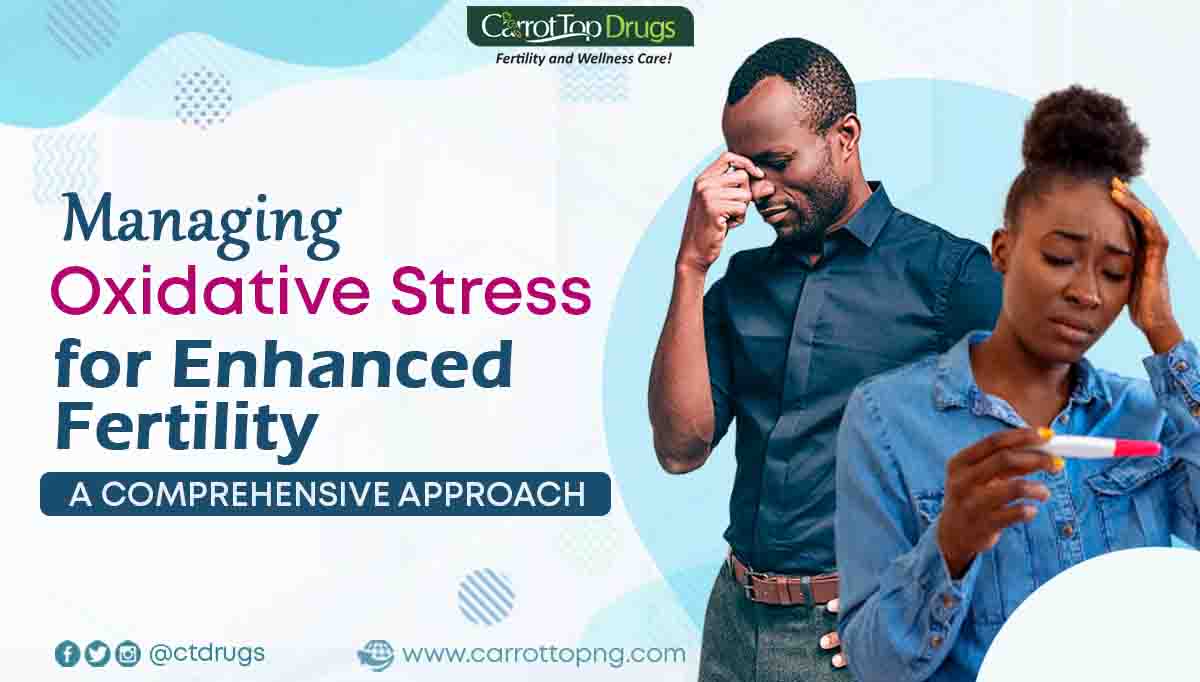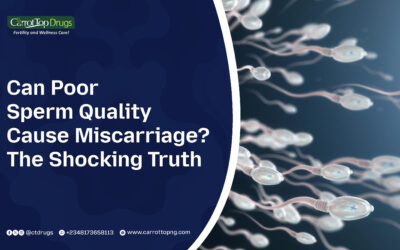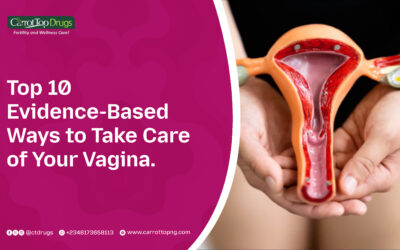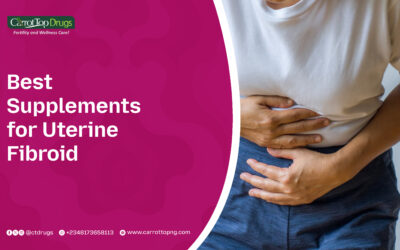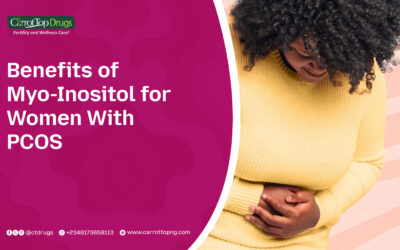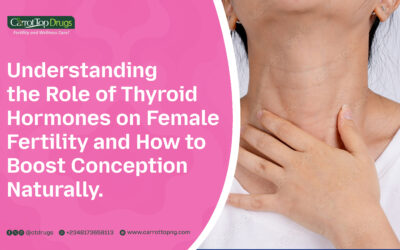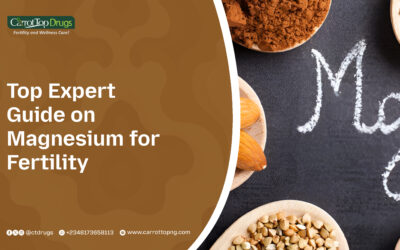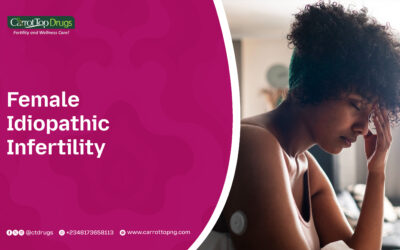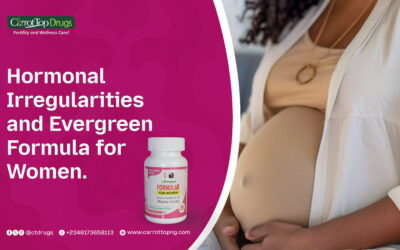Introduction
Understanding the intricate relationship between oxidative stress and fertility is paramount in navigating reproductive health. The far-reaching impact of oxidative stress on fertility warrants closer attention to its role in influencing the reproductive capacities of both men and women. Oxidative stress, characterized by an imbalance between free radicals and antioxidants, stands as a significant factor affecting sperm quality in men and egg viability in women. Exploring the measures to counteract this impact becomes vital for those aspiring to enhance their fertility potential.
Statistics
While fertility issues are multifaceted, the impact of oxidative stress on reproductive health is increasingly recognized in both men and women. Statistics reveal a notable correlation between oxidative stress and fertility challenges. In men, Tarique Hussain et al revealed that around 30-80% of cases involving male infertility are linked to oxidative stress-related damage to sperm. The impact of oxidative stress on male fertility is evident in research showing that over 50% of men seeking fertility treatment exhibit higher levels of oxidative stress in their semen, directly influencing sperm quality and motility.
On the female front, oxidative stress also plays a substantial role in fertility issues. Research shows, indicates that oxidative stress in considerable number of cases related to female infertility. Around 30-40% of women undergoing fertility treatment exhibit markers of increased oxidative stress in their reproductive systems. This oxidative burden can affect egg quality and disrupt normal reproductive processes, potentially contributing to conditions like endometriosis and polycystic ovary syndrome (PCOS). The impact of oxidative stress on female fertility is further supported by statistics demonstrating that nearly 25-40% of female infertility cases are associated with structural damage to eggs caused by oxidative stress.
Impact of Oxidative Stress on Male Fertility
Sperm Quality:
Oxidative stress significantly impacts sperm quality, a vital factor in fertility. High levels of oxidative stress can cause damage to the structure of sperm cells. This damage often leads to genetic alterations and abnormalities in the sperm, affecting their overall quality. DNA damage within the sperm due to oxidative stress can greatly impact its genetic integrity. This damage might lower the chances of successful fertilization and healthy embryo development, thus underscoring the pronounced impact of oxidative stress on fertility in men. We recommend that men take Evergreen Formular for Men. It contains nutrients that scavenge the free radicals and can help revert the effect of free radicals.
Sperm DNA Damage:
Oxidative stress-induced damage to sperm DNA is a critical concern affecting male fertility. High levels of oxidative stress can lead to DNA damage within sperm cells. This damage can result in genetic alterations, potentially reducing the viability of sperm for successful fertilization. The impact of oxidative stress on fertility becomes evident in the diminished genetic integrity of sperm, affecting the chances of successful conception and healthy embryonic development. Managing oxidative stress is pivotal in addressing DNA damage within sperm, ensuring optimal genetic integrity and enhancing fertility potential in men. Strategies focused on reducing oxidative stress and safeguarding sperm DNA are crucial for improving reproductive outcomes.
Reduced Motility:
Elevated oxidative stress levels can significantly impair sperm motility, a key factor in successful fertilization. Sperm require efficient motility to travel through the female reproductive tract and reach the egg for fertilization. Oxidative stress-induced damage can impact the sperm’s ability to swim effectively, hindering their journey to the egg and reducing the likelihood of successful fertilization. Managing oxidative stress is vital in preserving sperm motility, as impaired movement greatly affects the chances of achieving conception, emphasizing the crucial impact of oxidative stress on fertility by directly impeding the sperm’s ability to reach and fertilize the egg.
Decreased Sperm Count:
Excessive oxidative stress can lead to a reduction in the overall sperm count. Sperm count, the total number of sperm present in a given sample, is essential for fertility. High levels of oxidative stress can compromise the production and quality of sperm, contributing to a lower count. Addressing oxidative stress is pivotal in managing and potentially reversing the decrease in sperm count, underscoring the critical role of mitigating the impact of oxidative stress on fertility by aiming to improve the overall quantity and quality of sperm available for fertilization.
Altered Sperm Function:
Oxidative stress can alter the functionality of the protective membranes surrounding sperm, affecting their ability to penetrate and fertilize the egg effectively. These protective membranes are crucial for sperm motility and viability. Elevated oxidative stress levels can compromise these membranes, hindering the sperm’s ability to effectively interact with the egg for fertilization. Managing oxidative stress becomes paramount in addressing these alterations in sperm function, emphasizing the substantial impact of oxidative stress on fertility by directly affecting the sperm’s capacity to initiate the fertilization process. Strategies aimed at reducing oxidative stress are critical in preserving the structural integrity of sperm, ensuring their proper function and increasing the chances of successful conception.
All of these are some of the impact of oxidative stress on fertility of men. In order to protect or prevent these effects, it is necessary to take in antioxidants. Our Evergreen Formular for Men contains Vitamins A, C and E and loads of other nutrients that helps to combat the impact of oxidative stress on fertility.
Impact of Oxidative Stress on Female Fertility
Egg Quality:
Oxidative stress can significantly impact the quality of a woman’s eggs. High levels of oxidative stress can induce damage to the delicate structures of the egg cells, affecting their quality and potentially reducing their viability for successful fertilization. The damage caused by oxidative stress may affect the genetic material within the eggs, potentially leading to chromosomal abnormalities and reducing the chances of a healthy conception. This underscores the critical impact of oxidative stress on fertility in women, as egg quality plays a crucial role in successful fertilization and embryo development.
Menstrual Irregularities:
Oxidative stress has been associated with disruptions in menstrual cycles. Elevated levels of oxidative stress may influence hormonal fluctuations, leading to irregular or absent periods, which can affect ovulation and subsequently impact fertility. The imbalance caused by oxidative stress can disrupt the delicate hormonal patterns necessary for regular ovulation and menstrual cycles, highlighting the potential impact of oxidative stress on fertility by affecting the timing and regularity of the menstrual cycle crucial for conception.
Reproductive Conditions:
Conditions such as endometriosis and polycystic ovary syndrome (PCOS) can be influenced by oxidative stress. Endometriosis, a condition where tissue similar to the lining of the uterus grows outside the uterus, and PCOS, a hormonal disorder, are known to impact fertility. Oxidative stress can exacerbate the symptoms and progression of these conditions, affecting the reproductive system and fertility. Managing oxidative stress is crucial in addressing these reproductive conditions and lessening their impact on fertility, underlining the critical role in mitigating the impact of oxidative stress on fertility for women with these conditions.
Hormonal Imbalance:
Oxidative stress can disrupt the delicate balance of hormones essential for reproductive health. Hormonal imbalances resulting from oxidative stress can affect the ovulation process, menstrual regularity, and overall reproductive health, ultimately influencing fertility. Managing oxidative stress is pivotal in restoring hormonal balance, emphasizing the need to address the impact of oxidative stress on fertility by targeting the underlying hormonal disruptions that can affect a woman’s ability to conceive.
Reduction in Ovarian Reserve:
Elevated levels of oxidative stress can contribute to a reduction in the number and quality of a woman’s eggs, impacting her ovarian reserve. The ovaries hold a finite number of eggs, and oxidative stress can accelerate the aging process of these eggs, potentially diminishing their quality and quantity. The decline in ovarian reserve due to oxidative stress highlights the importance of managing it to preserve fertility potential by safeguarding the quality and quantity of available eggs.
Managing oxidative stress is possible with Evergreen Formula for Women and Evergreen EggBoost for women. They contain nutrients like Vitamin A, C, E, myo-inositol, L-Carnitine and several other nutrients. These nutrients can both combat the effects of these free radicals that cause oxidative stress but they can also boost the oocyte quality.
Conclusion
In conclusion, the far-reaching implications of oxidative stress on fertility underscore the importance of proactive measures. The impact of oxidative stress is not only on women but also on men. Taking Evergreen Formular for Men and Women and a healthy lifestyle are ways to manage their effects.
Frequently Asked Questions (FAQs)
1. Can oxidative stress be completely eliminated?
Oxidative stress is a natural process, but its effects can be managed through lifestyle adjustments and proper nutrition.
2. Are there specific foods that help reduce oxidative stress for fertility?
Yes, foods rich in antioxidants, such as berries, leafy greens, nuts, and seeds, are beneficial in combating oxidative stress.
3. How does exercise influence oxidative stress and fertility?
Regular exercise can help reduce oxidative stress. However, excessive or intense workouts might increase oxidative stress levels.
4. Can oxidative stress impact assisted reproductive techniques (ART) success?
High levels of oxidative stress might affect the success rates of ART procedures. Managing stress and lifestyle factors can positively influence outcomes.
5. Are there supplements specifically designed to improve fertility by reducing oxidative stress?
Several supplements are available that contain antioxidants and nutrients known to combat oxidative stress and potentially enhance fertility.

